BACK TO finalistS
Finalist
HOUSE HOSTEL
Design Statement for House Hostel The House Hostel in Tuen Mun, Hong Kong, is a modular accommodation concept that offers guests a "home away from home" experience. Inspired by traditional pitched-roof house imagery, the design fosters a sense of comfort, familiarity, and immersion in the local community. At the core of the project is the […]

Design Statement for House Hostel
The House Hostel in Tuen Mun, Hong Kong, is a modular accommodation concept that offers guests a "home away from home" experience. Inspired by traditional pitched-roof house imagery, the design fosters a sense of comfort, familiarity, and immersion in the local community.
At the core of the project is the use of Modular Integrated Construction (MIC) principles. The modular units, resembling interconnected MIC blocks, are strategically combined to create a cohesive and visually striking architectural composition. This modular approach enables efficient off-site fabrication, flexible customization, and adaptable scalability, facilitating the integration of the hostel within the surrounding urban fabric.
The strategic location of the House Hostel, adjacent to the vibrant San Hui Market, is a key aspect of the design. By situating the project in the heart of this lively marketplace, the design encourages guests to immerse themselves in the local community and gain authentic insights into the area's culture and traditions. Visitors can explore the diverse offerings of the market, engage with friendly vendors, and develop a deeper appreciation for daily life in Tuen Mun.
The "home" concept is further reinforced through the design of the interior spaces. The guest rooms, featuring both single and twin configurations, are designed to provide a sense of comfort and privacy, akin to a personal living space. The communal areas, such as the kitchen and common room, foster a welcoming atmosphere and encourage interaction, socializing, and the sharing of experiences among guests.
The architectural expression of the House Hostel blends modern and traditional elements. The use of pitched roof forms creates a familiar and inviting visual language. This is complemented by the strategic placement of openable windows, which enhance natural ventilation, introduce daylighting, and frame views of the surrounding environment, allowing guests to connect with the local context.
The color palette of the hostel, inspired by Nippon Paint's collection, further reinforces the sense of warmth and homeliness. Earthy tones, such as Seaside Lodge and Coated Hazel, are combined with vibrant accents of Bubblegum Pink and Spinning Silk, creating a visually engaging and harmonious aesthetic.
The zoning of the hostel's spaces has been carefully considered to optimize functionality and user experience. The public areas, including the lobby, café, and covered plaza, are strategically positioned to create a welcoming and accessible environment for both hostel guests and the local community. The private guest zones, such as the rooms and communal facilities, are designed with controlled access to ensure a comfortable and secure atmosphere.
Sustainability and adaptability have been key priorities throughout the design process. The modular construction approach allows for easy maintenance, repairs, and future modifications, ensuring the longevity and relevance of the hostel in the long term. Additionally, the integration of energy-efficient systems and the incorporation of green design strategies, such as natural ventilation and daylighting, contribute to the project's overall environmental sustainability.
The flexible and customizable nature of the modular design enables the House Hostel to be adapted to different site conditions and requirements, ensuring its suitability for a variety of urban contexts. This adaptability also allows the project to evolve and respond to changing market demands and user preferences over time, maintaining its relevance and appeal.
In conclusion, the House Hostel in Tuen Mun is a thoughtfully designed accommodation concept that combines the principles of Modular Integrated Construction with a "home away from home" experience. By fostering a sense of comfort, community, and cultural immersion, the project aims to redefine the traditional hostel experience and provide a welcoming and enriching environment for its guests. The strategic integration of the hostel within the vibrant local context, coupled with the design's emphasis on sustainability and adaptability, ensures that the House Hostel is a forward-thinking and responsive solution for the evolving needs of modern travellers.
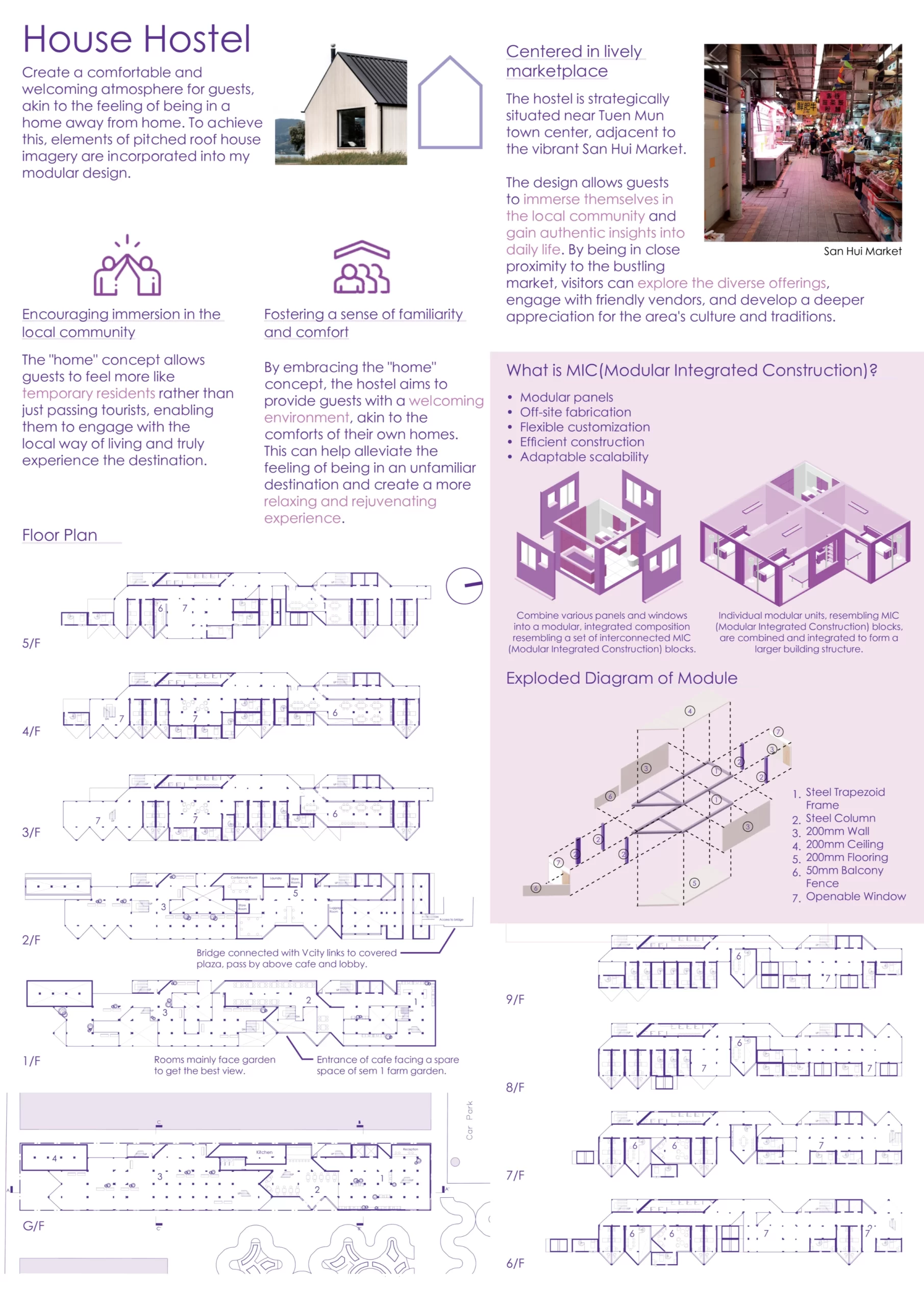
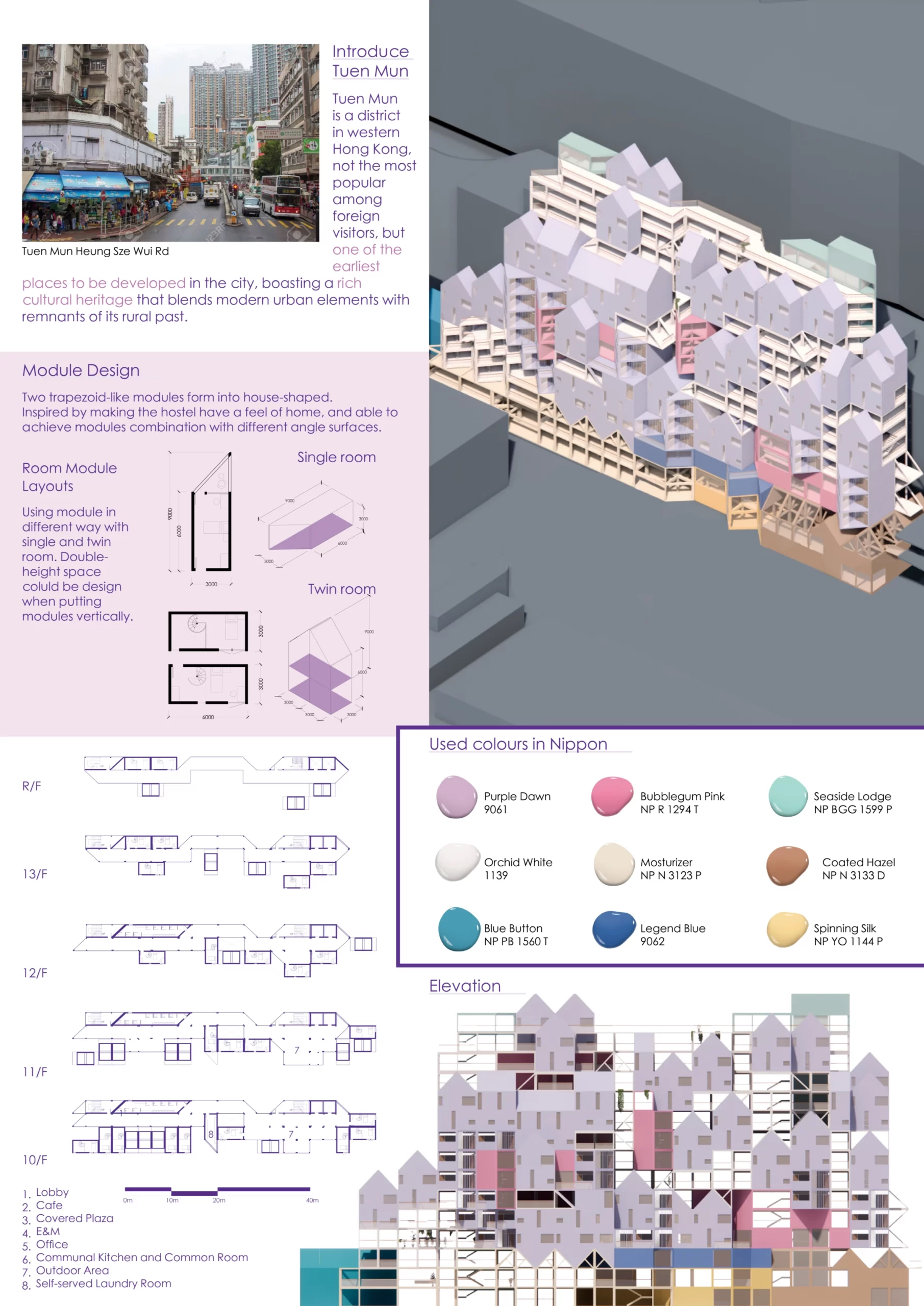
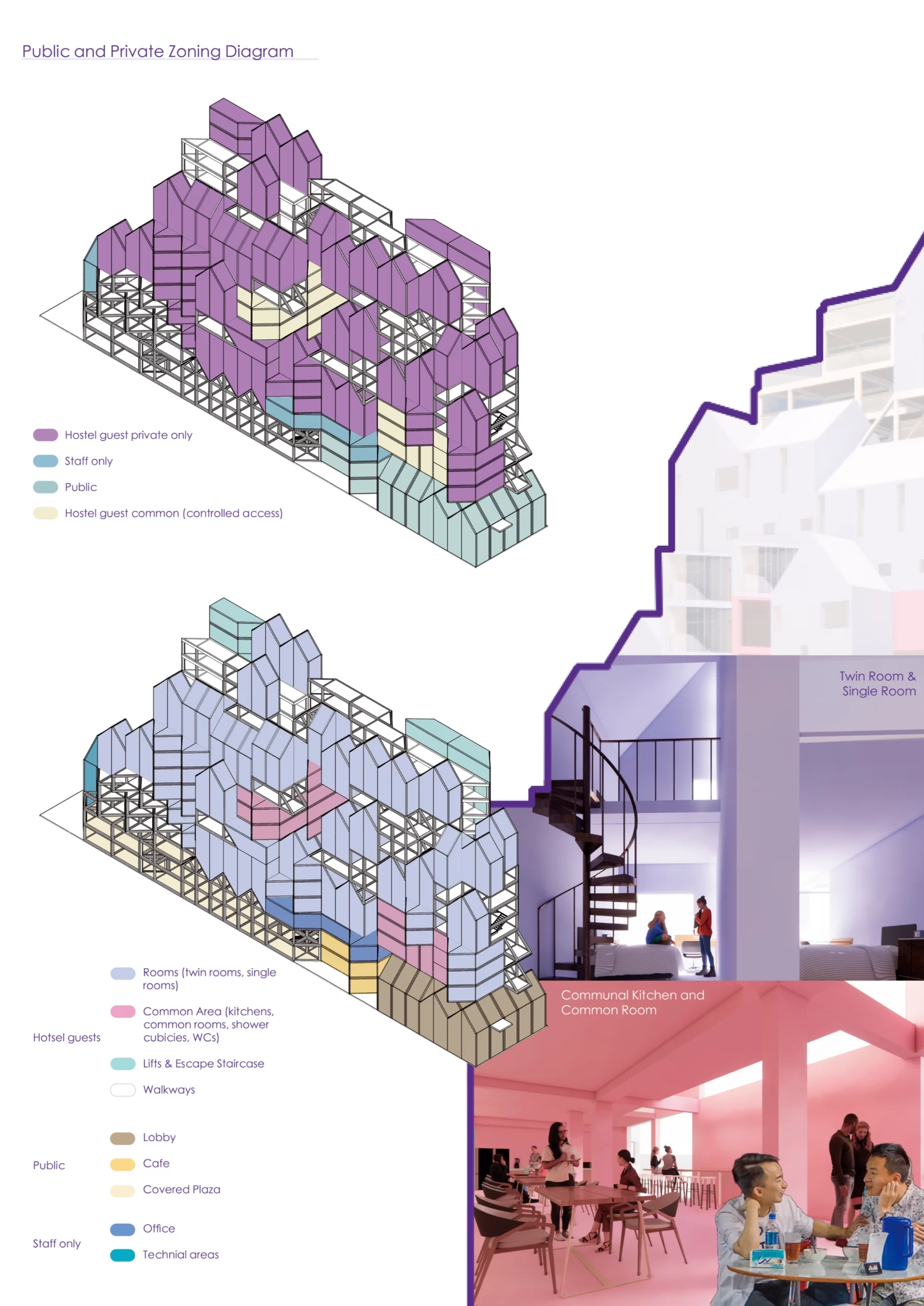
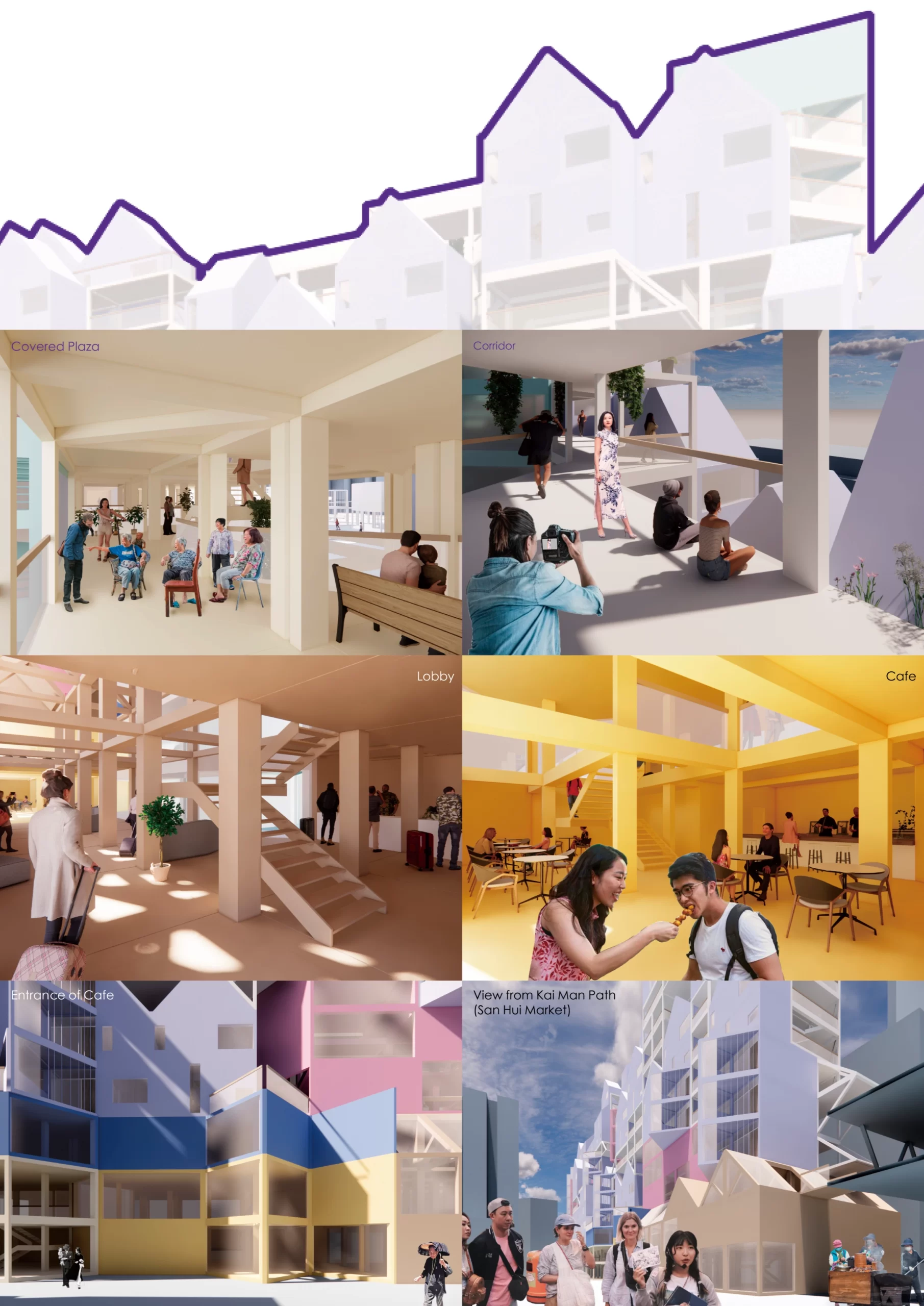
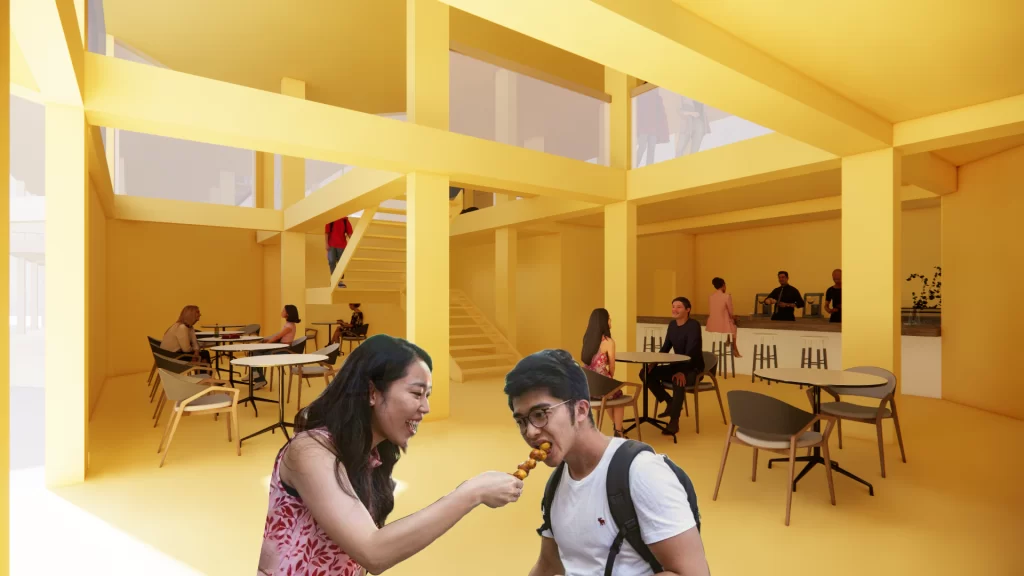
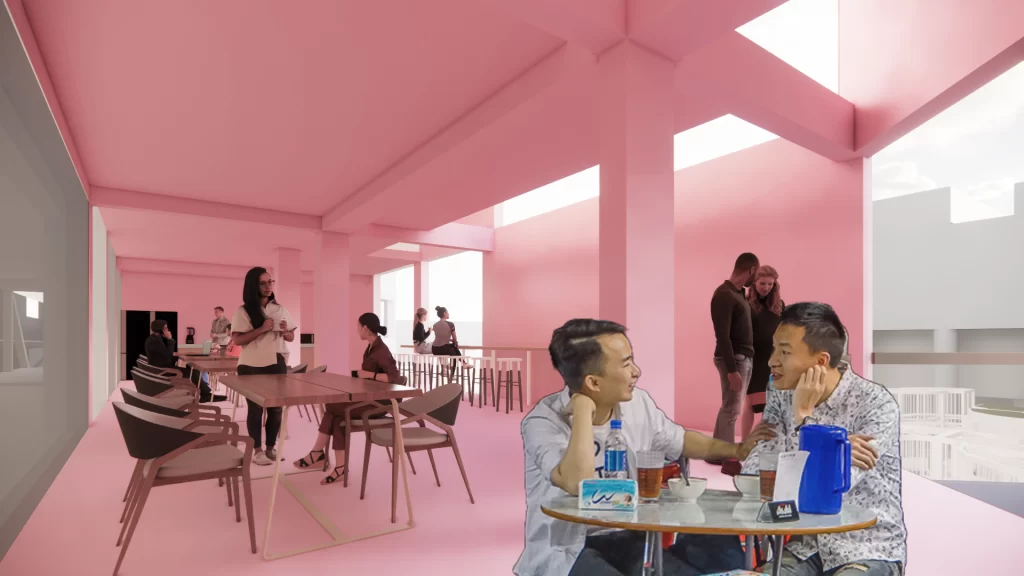
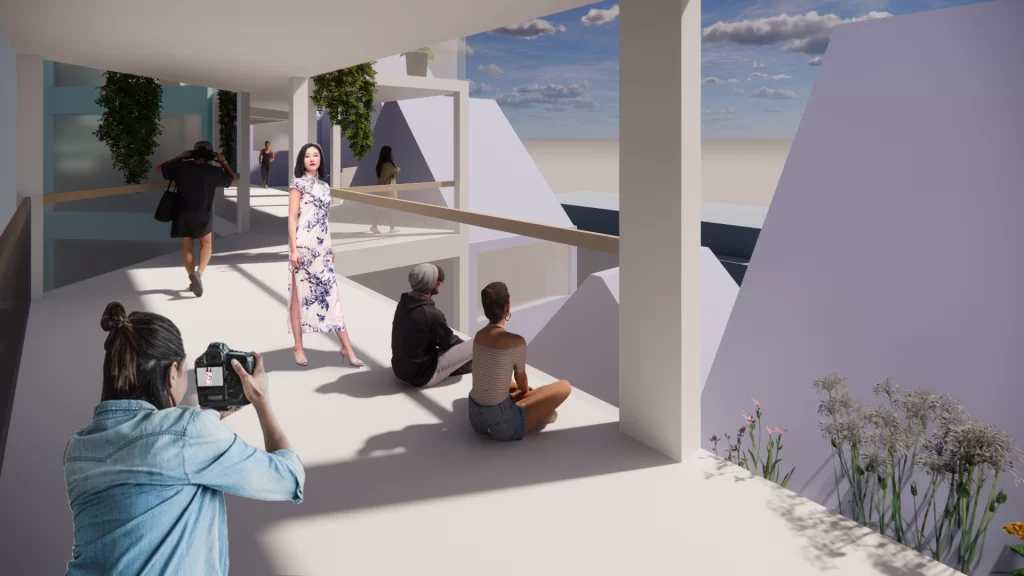
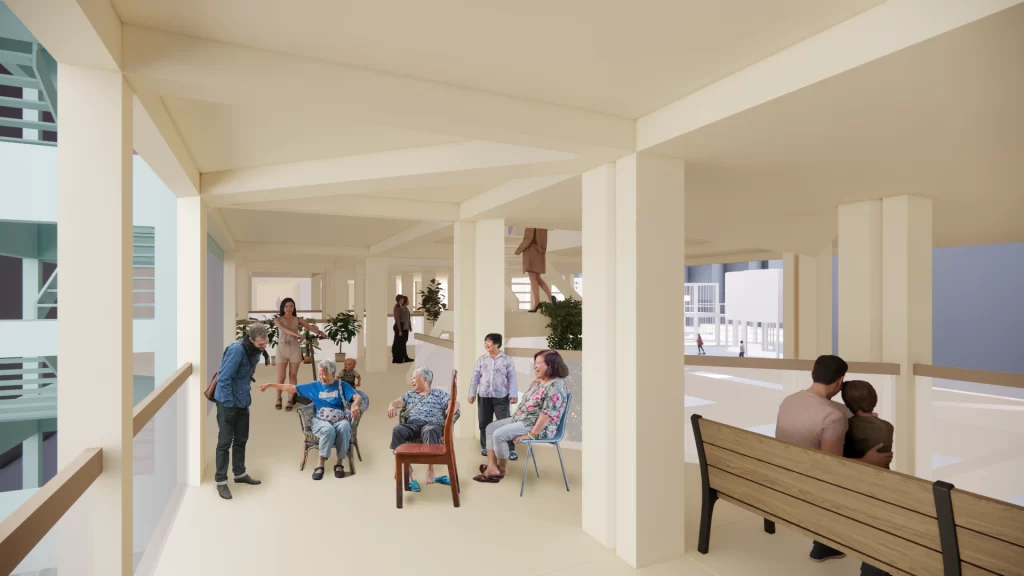
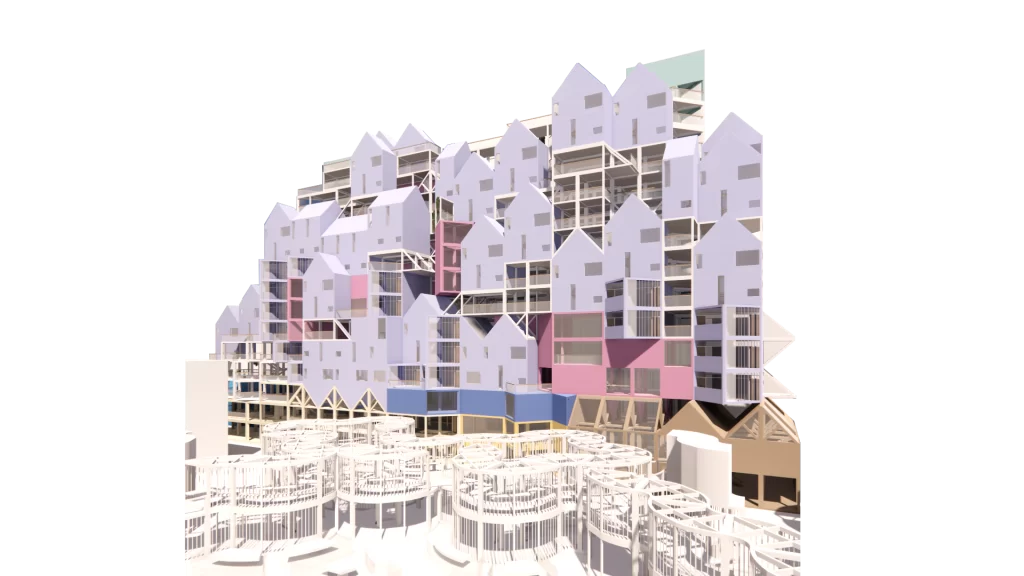
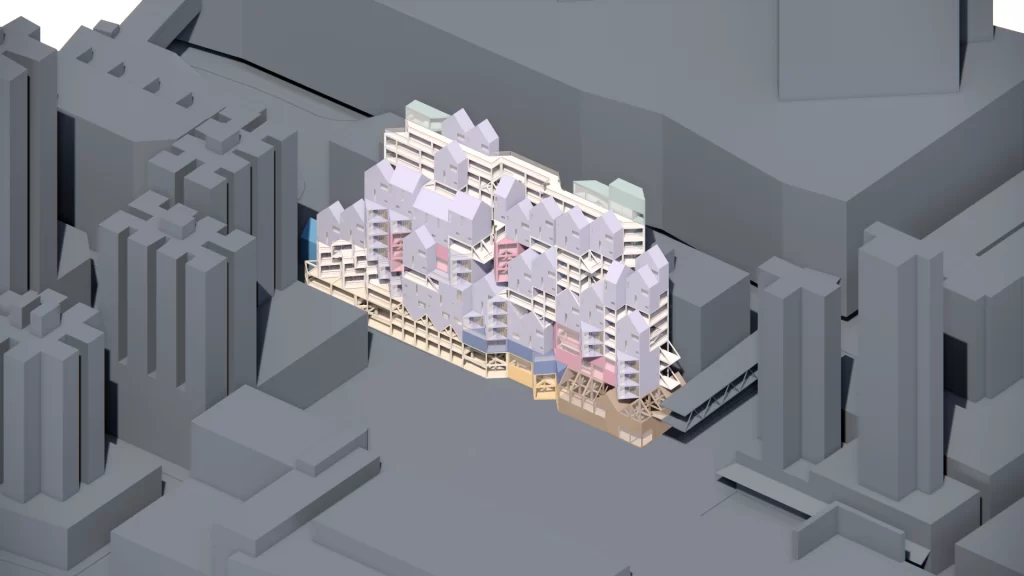
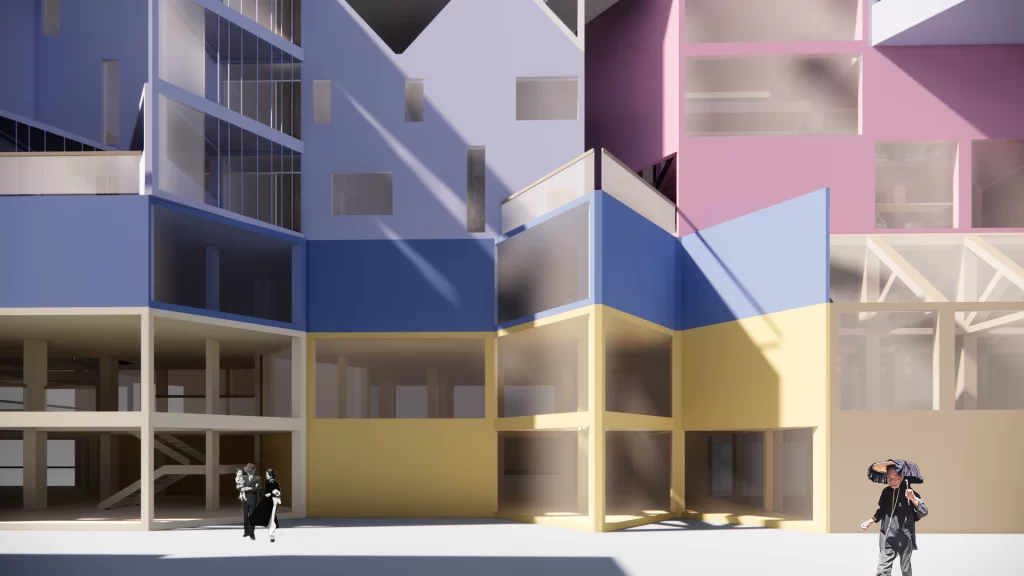
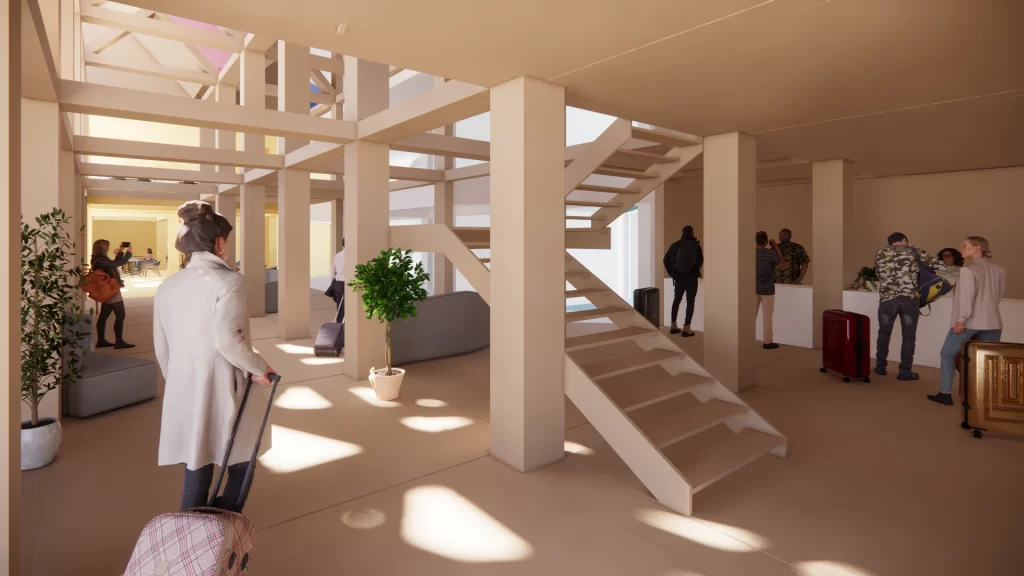
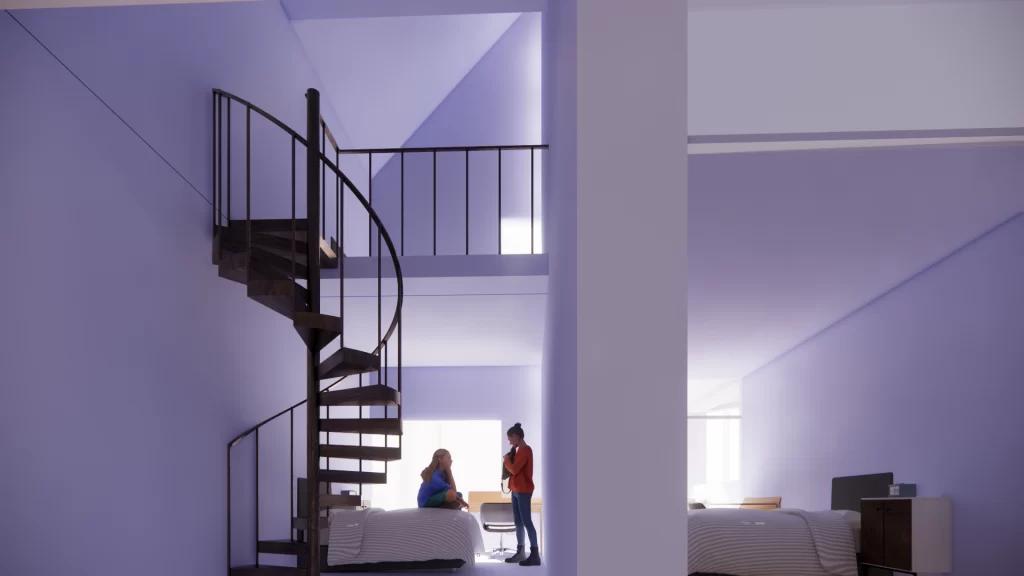
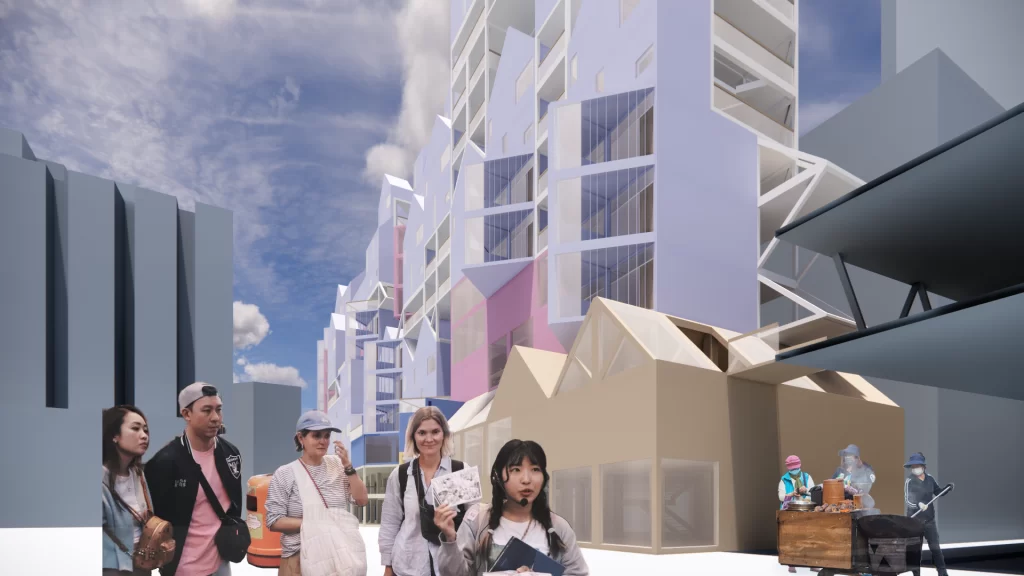
Showcase your design to an international audience
SUBMIT NOW
Image: Agrapolis Urban Permaculture Farm by David Johanes Palar
Top
Design Statement for House Hostel The House Hostel in Tuen Mun, Hong Kong, is a modular accommodation concept that offers guests a "home away from home" experience. Inspired by traditional pitched-roof house imagery, the design fosters a sense of comfort, familiarity, and immersion in the local community. At the core of the project is the use of Modular Integrated Construction (MIC) principles. The modular units, resembling interconnected MIC blocks, are strategically combined to create a cohesive and visually striking architectural composition. This modular approach enables efficient off-site fabrication, flexible customization, and adaptable scalability, facilitating the integration of the hostel within the surrounding urban fabric. The strategic location of the House Hostel, adjacent to the vibrant San Hui Market, is a key aspect of the design. By situating the project in the heart of this lively marketplace, the design encourages guests to immerse themselves in the local community and gain authentic insights into the area's culture and traditions. Visitors can explore the diverse offerings of the market, engage with friendly vendors, and develop a deeper appreciation for daily life in Tuen Mun. The "home" concept is further reinforced through the design of the interior spaces. The guest rooms, featuring both single and twin configurations, are designed to provide a sense of comfort and privacy, akin to a personal living space. The communal areas, such as the kitchen and common room, foster a welcoming atmosphere and encourage interaction, socializing, and the sharing of experiences among guests. The architectural expression of the House Hostel blends modern and traditional elements. The use of pitched roof forms creates a familiar and inviting visual language. This is complemented by the strategic placement of openable windows, which enhance natural ventilation, introduce daylighting, and frame views of the surrounding environment, allowing guests to connect with the local context. The color palette of the hostel, inspired by Nippon Paint's collection, further reinforces the sense of warmth and homeliness. Earthy tones, such as Seaside Lodge and Coated Hazel, are combined with vibrant accents of Bubblegum Pink and Spinning Silk, creating a visually engaging and harmonious aesthetic. The zoning of the hostel's spaces has been carefully considered to optimize functionality and user experience. The public areas, including the lobby, café, and covered plaza, are strategically positioned to create a welcoming and accessible environment for both hostel guests and the local community. The private guest zones, such as the rooms and communal facilities, are designed with controlled access to ensure a comfortable and secure atmosphere. Sustainability and adaptability have been key priorities throughout the design process. The modular construction approach allows for easy maintenance, repairs, and future modifications, ensuring the longevity and relevance of the hostel in the long term. Additionally, the integration of energy-efficient systems and the incorporation of green design strategies, such as natural ventilation and daylighting, contribute to the project's overall environmental sustainability. The flexible and customizable nature of the modular design enables the House Hostel to be adapted to different site conditions and requirements, ensuring its suitability for a variety of urban contexts. This adaptability also allows the project to evolve and respond to changing market demands and user preferences over time, maintaining its relevance and appeal. In conclusion, the House Hostel in Tuen Mun is a thoughtfully designed accommodation concept that combines the principles of Modular Integrated Construction with a "home away from home" experience. By fostering a sense of comfort, community, and cultural immersion, the project aims to redefine the traditional hostel experience and provide a welcoming and enriching environment for its guests. The strategic integration of the hostel within the vibrant local context, coupled with the design's emphasis on sustainability and adaptability, ensures that the House Hostel is a forward-thinking and responsive solution for the evolving needs of modern travellers.













